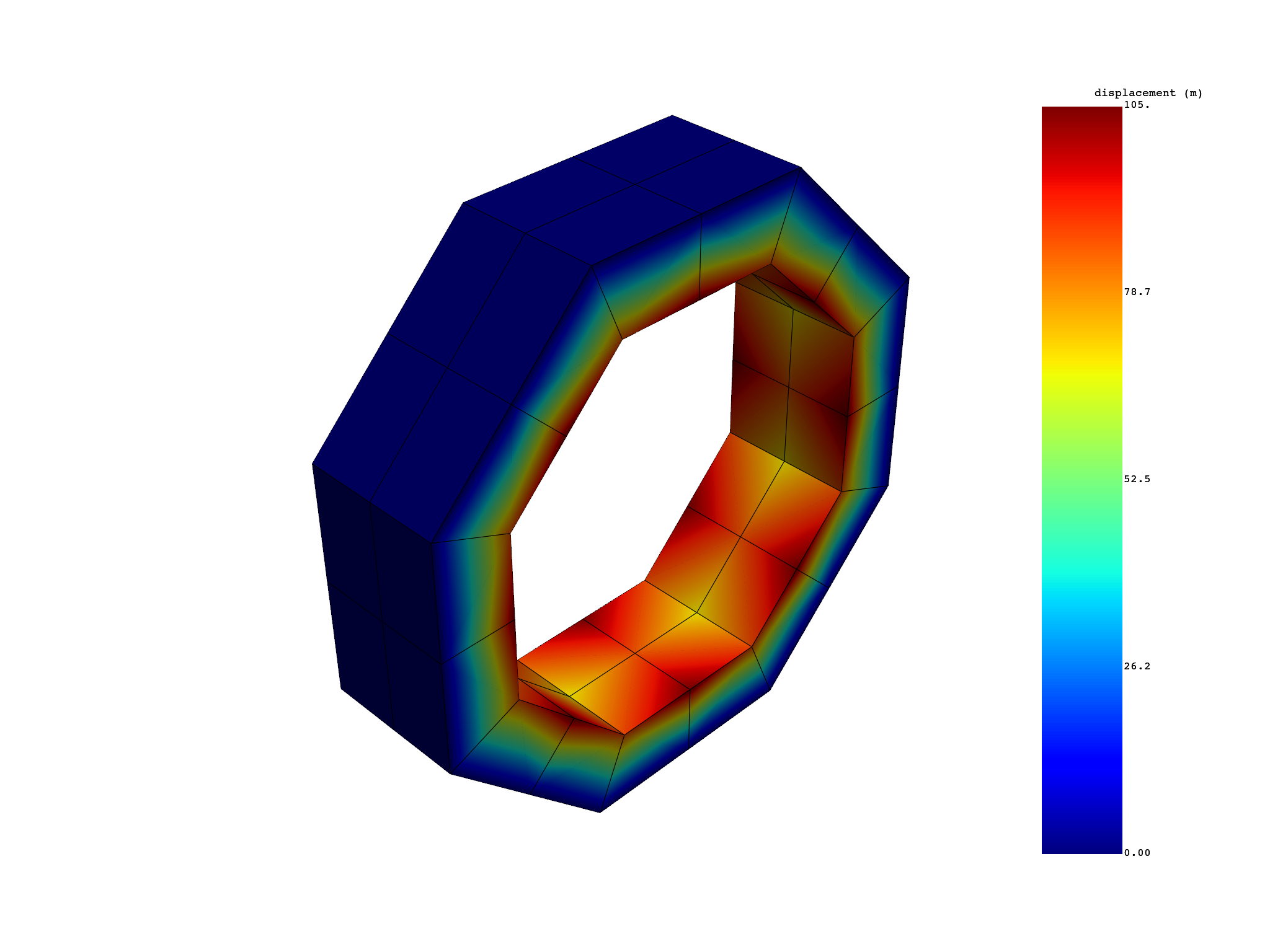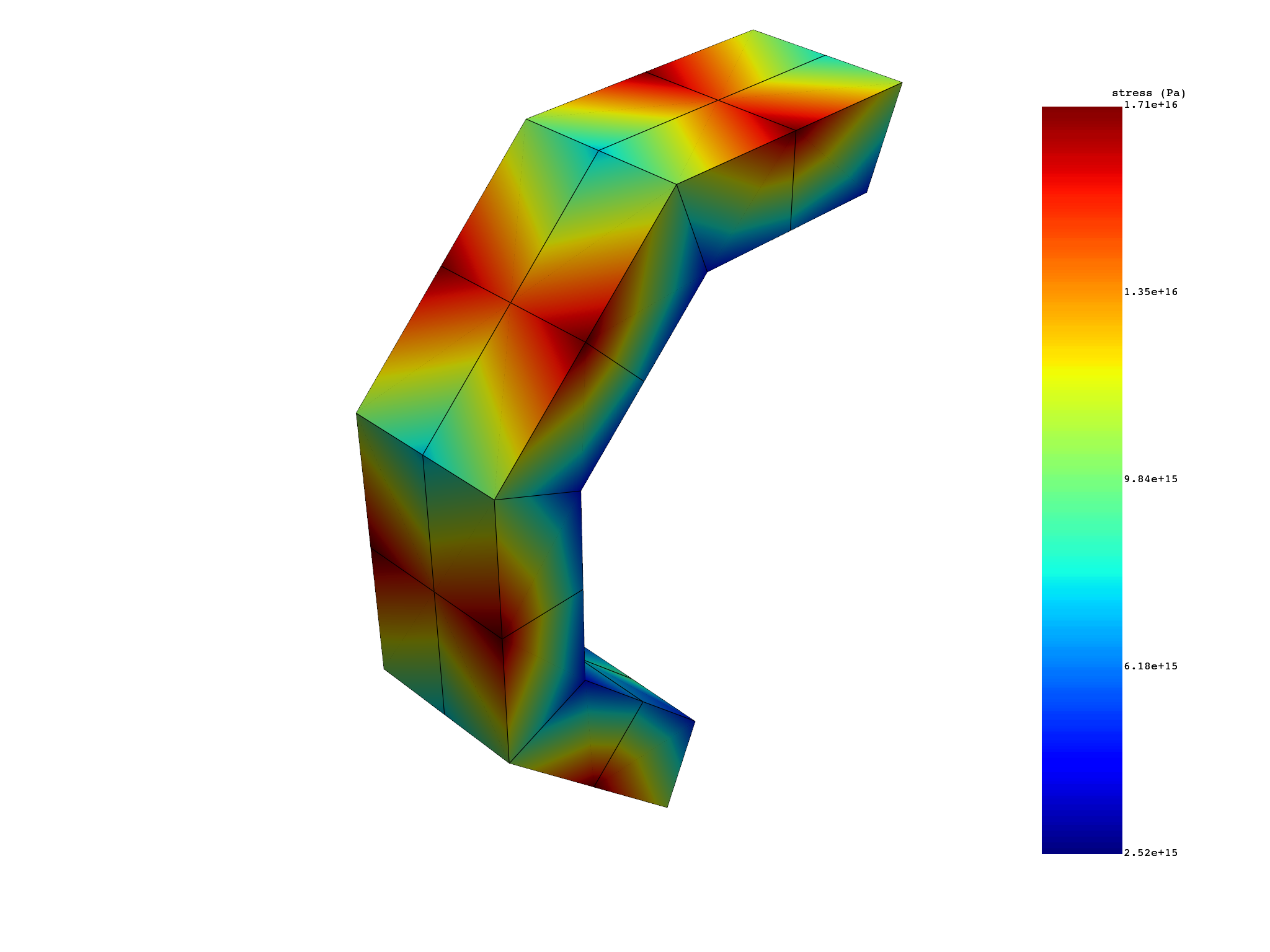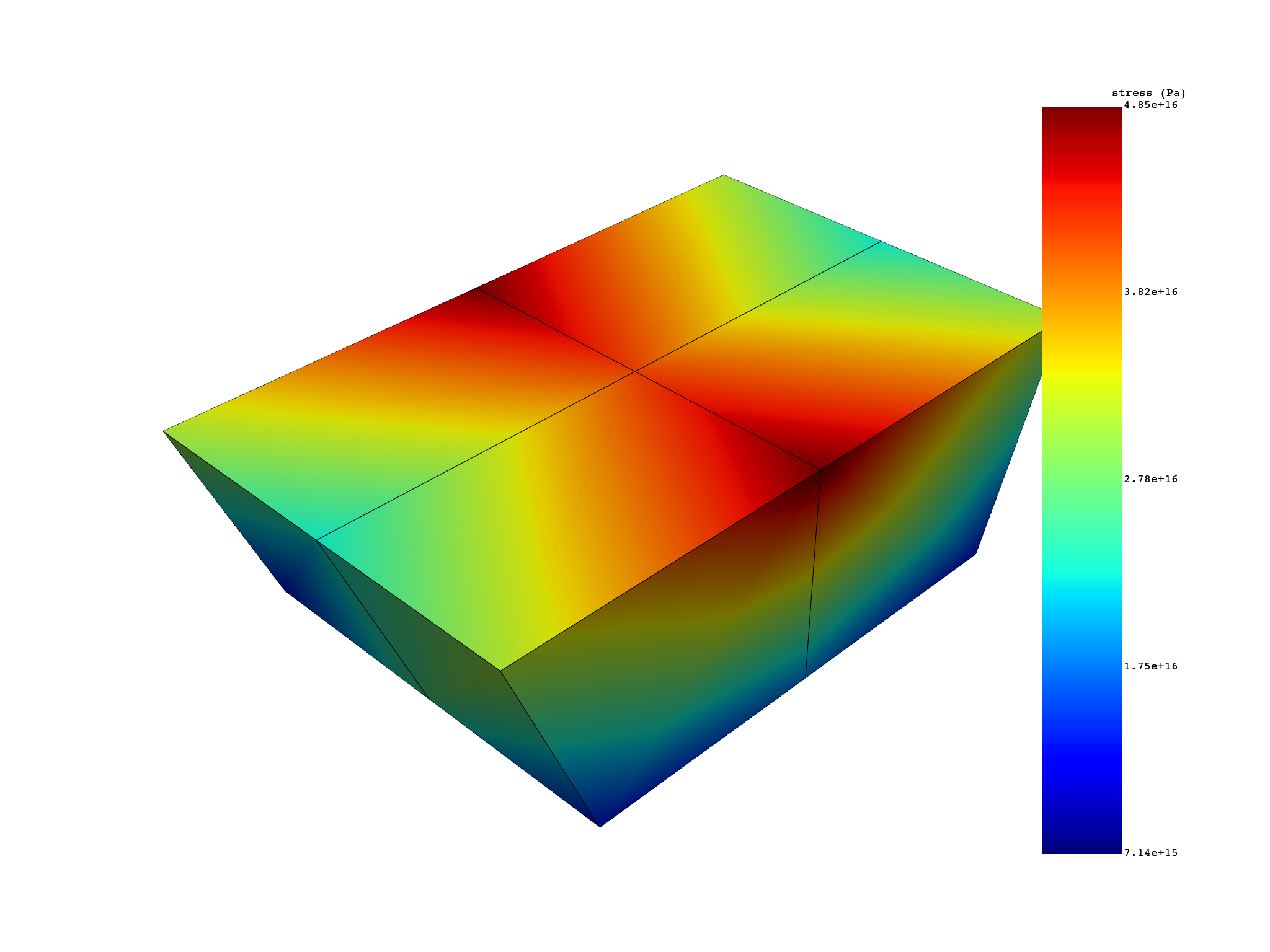Note
Go to the end to download the full example code.
Extract cyclic results#
This example uses a modal analysis with cyclic symmetry to show how to expand the mesh and results.
Note
This example requires DPF 3.0 (2022 R1) or above. For more information, see PyDPF library compatibilities.
Perform required imports#
Perform required imports. This example uses a supplied file that you can
get by importing the DPF examples package.
from ansys.dpf import post
from ansys.dpf.post import examples
Get Simulation object#
Get the Simulation object that allows access to the result. The Simulation
object must be instantiated with the path for the result file. For example,
"C:/Users/user/my_result.rst" on Windows or "/home/user/my_result.rst"
on Linux.
example_path = examples.find_simple_cyclic()
simulation = post.ModalMechanicalSimulation(example_path)
# print the simulation to get an overview of what's available
print(simulation)
Modal Mechanical Simulation.
Data Sources
------------------------------
/opt/hostedtoolcache/Python/3.10.19/x64/lib/python3.10/site-packages/ansys/dpf/core/examples/result_files/file_cyclic.rst
DPF Model
------------------------------
Modal analysis
Unit system: MKS: m, kg, N, s, V, A, degC
Physics Type: Mechanical
Available results:
- node_orientations: Nodal Node Euler Angles
- displacement: Nodal Displacement
- stress: ElementalNodal Stress
- elemental_volume: Elemental Volume
- stiffness_matrix_energy: Elemental Energy-stiffness matrix
- artificial_hourglass_energy: Elemental Hourglass Energy
- kinetic_energy: Elemental Kinetic Energy
- co_energy: Elemental co-energy
- incremental_energy: Elemental incremental energy
- thermal_dissipation_energy: Elemental thermal dissipation energy
- element_orientations: ElementalNodal Element Euler Angles
- structural_temperature: ElementalNodal Structural temperature
------------------------------
DPF Meshed Region:
51 nodes
4 elements
Unit: m
With solid (3D) elements
------------------------------
DPF Time/Freq Support:
Number of sets: 30
Cumulative Frequency (Hz) LoadStep Substep Harmonic index
1 670386.325235 1 1 0.000000
2 872361.424038 1 2 0.000000
3 1142526.525324 1 3 0.000000
4 1252446.741551 1 4 0.000000
5 1257379.552140 1 5 0.000000
6 1347919.358013 1 6 0.000000
7 679667.393214 2 1 1.000000
8 679667.393214 2 2 -1.000000
9 899321.218481 2 3 -1.000000
10 899321.218481 2 4 1.000000
11 1128387.049511 2 5 1.000000
12 1128387.049511 2 6 -1.000000
13 708505.071361 3 1 -2.000000
14 708505.071361 3 2 2.000000
15 966346.820117 3 3 2.000000
16 966346.820117 3 4 -2.000000
17 1031249.070606 3 5 -2.000000
18 1031249.070606 3 6 2.000000
19 757366.624982 4 1 -3.000000
20 757366.624982 4 2 3.000000
21 926631.623058 4 3 -3.000000
22 926631.623058 4 4 3.000000
23 1035144.649248 4 5 3.000000
24 1035144.649248 4 6 -3.000000
25 807882.379030 5 1 4.000000
26 856868.410638 5 2 4.000000
27 1063247.283632 5 3 4.000000
28 1185511.741334 5 4 4.000000
29 1278969.844256 5 5 4.000000
30 1355579.879820 5 6 4.000000
Extract expanded displacement normal#
displacement_norm = simulation.displacement(
norm=True,
expand_cyclic=True,
)
print(displacement_norm)
displacement_norm.plot()

results U_N (m)
set_ids 1
node_ids
1 8.5207e+01
52 8.5207e+01
103 8.5207e+01
154 8.5207e+01
205 8.5207e+01
256 8.5207e+01
... ...
(None, <pyvista.plotting.plotter.Plotter object at 0x7fa4ae595090>)
Extract equivalent von Mises nodal stress expanded on first four sectors#
stress_vm_sectors_1_2_3_4 = simulation.stress_eqv_von_mises_nodal(
expand_cyclic=[1, 2, 3, 4],
)
print(stress_vm_sectors_1_2_3_4)
stress_vm_sectors_1_2_3_4.plot()

results S_VM (Pa)
set_ids 1
node_ids
1 7.6536e+15
14 9.2247e+15
15 4.6219e+15
18 6.4123e+15
2 1.4681e+16
6 7.9359e+15
... ...
(None, <pyvista.plotting.plotter.Plotter object at 0x7fa4ae597e20>)
Extract equivalent von Mises nodal stress without expansion#
stress_vm_sector_1 = simulation.stress_eqv_von_mises_nodal(
expand_cyclic=False,
)
print(stress_vm_sector_1)
stress_vm_sector_1.plot()

results S_VM (Pa)
set_ids 1
base_sector 1
node_ids
1 2.1648e+16
14 2.6092e+16
15 1.3073e+16
18 1.8137e+16
2 4.1523e+16
6 2.2446e+16
... ...
(None, <pyvista.plotting.plotter.Plotter object at 0x7fa4ae596500>)
Total running time of the script: (0 minutes 2.095 seconds)

